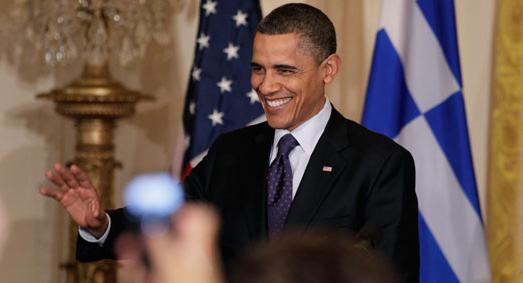
Critical voices in the U.S. would have liked to see the world’s biggest economic power take a more interventionist role in order to solve issues in Greece. Peter Doyle, the former International Monetary Fund economist, is among them. He is convinced that the U.S. should have made more use of its political clout in order to prevent creditors from refusing the Greek offer on June 24.
However, the U.S. has far from remained on the sidelines. In May 2010, then-U.S. Secretary of the Treasury Timothy Geithner played a crucial part in avoiding Greece’s initial collapse, ordering EU members to assume the potential consequences of a default.
In recent weeks, President Obama has been seen urging the EU to relieve the Greek debt, which has become unbearable. On Monday, government spokesperson Josh Earnest reiterated this position, advising Athens and the EU “to agree to a package of reforms and financing that would allow Greece to be on a path toward debt sustainability but also economic growth.”
Secretary of the Treasury Jack Lew has increased discussions with his European counterparts and has advised Greek Prime Minister Alexis Tsipras to continue negotiations with the troika. But U.S. efforts have so far enjoyed little success. According to economist Peter Doyle, the U.S. government could have done significantly more in order to urge the IMF to grant more favorable loans to Greece. After all, didn’t the U.S. play a crucial role in convincing the IMF to grant loans to Ukraine and Afghanistan even though these two countries are no more capable of fulfilling IMF criteria than Greece is?
The Ghost of Russia
However, a “Grexit” could mean both economic and geopolitical consequences for the USA. Despite his seemingly reassuring remarks, Obama nonetheless ensured the Greek issue was top of his agenda during discussions with German Chancellor Angela Merkel outside the G-7 summit in June. For the USA, the economic risks include a destabilization of the eurozone and a decrease in European growth. Such factors may influence the growth rate in the United States, which currently stands at 2 percent. Democrat Hillary Clinton could be one of the first victims of a slowing economy in the context of the 2016 presidential elections.
The U.S. finds itself unable to shrug off fears based on events of the not-so-distant past. At the end of World War II, the U.S. made significant efforts to prevent Athens from joining Communist forces. Today, Vladimir Putin may very well attempt to take advantage of the European divide in order to grant more substantial support to Greece. After all, Alexis Tsipras isn’t one to turn down certain “offers” from the Kremlin, and America is very much aware of this. When the EU renewed sanctions against Russia regarding the crisis in Ukraine, the U.S. urged Athens not to block these measures. If Greece succumbs to chaos, we can’t be sure that the Greek government will be quite as considerate toward the USA.

Leave a Reply
You must be logged in to post a comment.